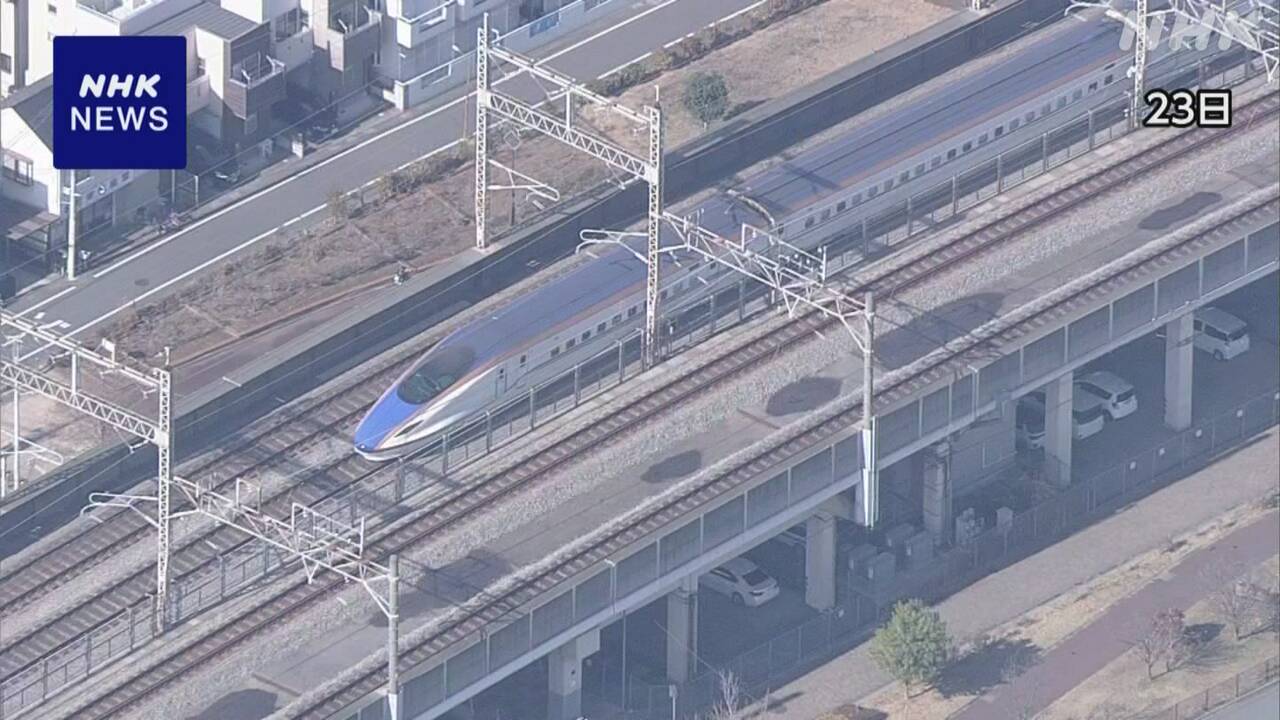On the 23rd, due to a problem that caused the Tohoku, Hokuriku, and Joetsu Shinkansen trains to suspend operation over a wide area for an extended period of time, JR East announced that the parts that adjust the tension of the overhead wires broke, causing the overhead wires to sag and causing damage to running trains. It has been revealed that the cause is believed to be due to contact.
On the morning of the 23rd, a power outage occurred on the Tohoku, Hokuriku, and Joetsu Shinkansen lines, and when JR investigated, they found overhead wires hanging down on the inbound section between Ueno and Omiya, and a Kagayaki train stationed nearby. Vehicles were found to have damaged pantographs and cracked windows.
As a result of this, operations continued to
be suspended in a wide range of areas,
including the Tohoku Shinkansen between Tokyo and Sendai, and the Hokuriku Shinkansen and
Joetsu Shinkansen between Tokyo and Takasaki.
120,000 people were affected.
When JR East investigated equipment near the site, it was discovered that a steel part that supports the approximately 1.3-ton weight that adjusts the tension of the overhead wires had fractured.
As a result, parts broke and the overhead wires sagged, and as a result of contact with the body of the moving Kagayaki, an abnormality was detected and it appears that a power outage occurred.
According to JR East, this part is scheduled to be replaced approximately every 30 years according to company standards, but the replacement period is decided based on individual conditions.
Visual inspections of the broken part in June and October of last year showed no abnormalities, and 38 years had passed since it was first used.
JR East plans to conduct emergency inspections within this month of approximately 500 locations where the same parts are used on Shinkansen trains.
A representative said, ``We would like to investigate the cause of the component breakage by requesting an analysis from a specialized organization, and work to prevent it from happening again.''

